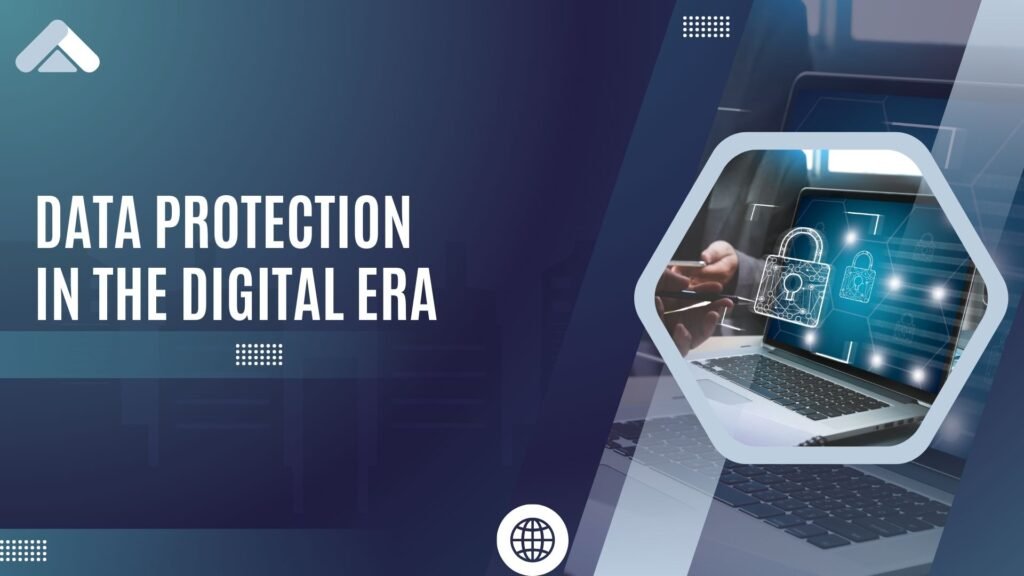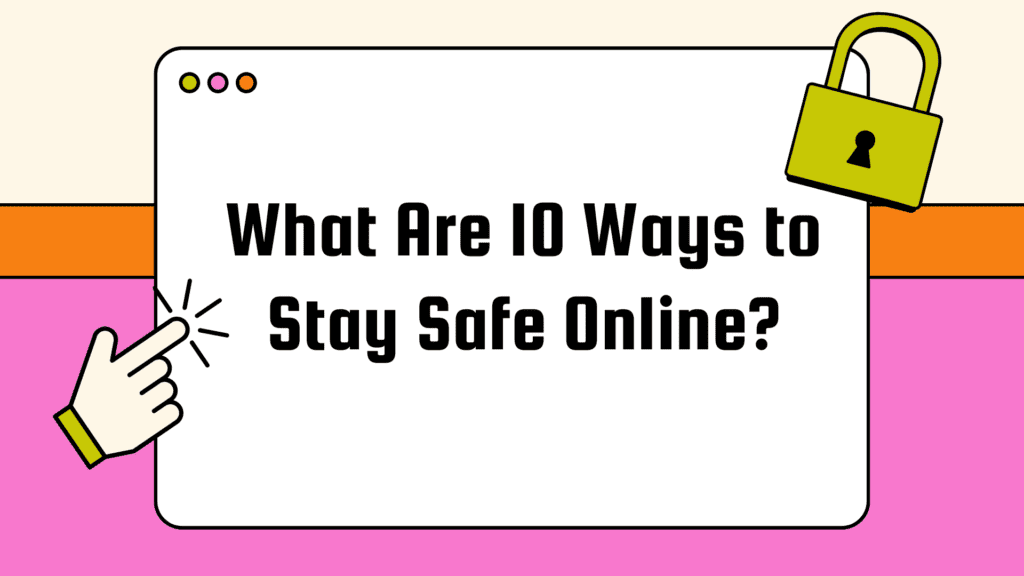Introduction:
In the 21st century, the web has finished up an crucial parcel of each day life. From instruction and communication to shopping and energy, about each point of human interaction by and by depends on progressed stages. While this progressed alter has made unending openings, it has as well displayed veritable perils. Online security has finished up one of the most pressing concerns for individuals, families, businesses, and governments. Whether it’s cybercrime, data breaches, online goading, or traps, the perils are honest to goodness and creating each day.
This article gives a comprehensive coordinate to online security, examining its noteworthiness, perils, strategies, and future perspective. By the conclusion, you will have down to soil data to guarantee yourself and your revered ones from the secured up dangers of the internet.
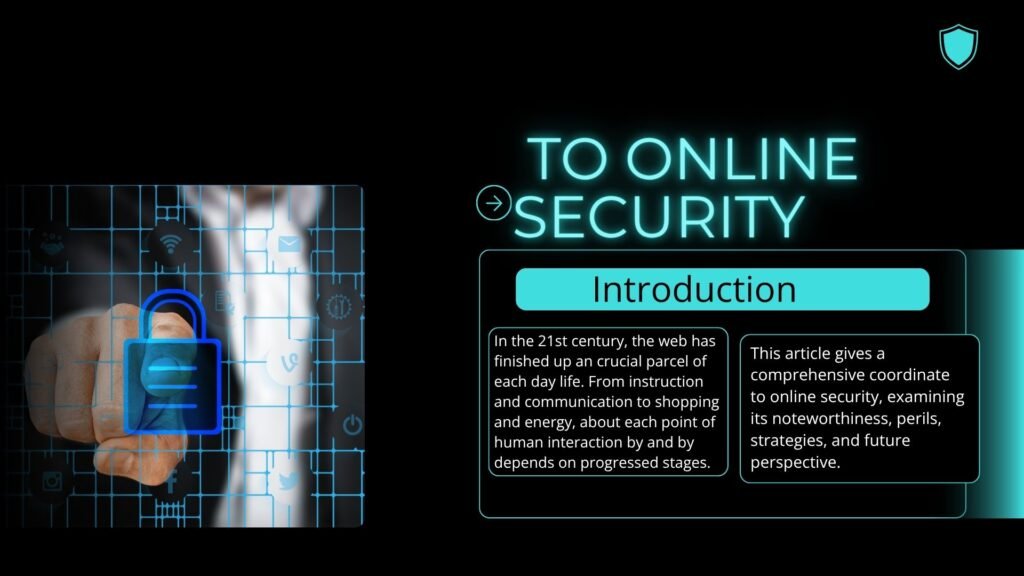
The Creating Importance of Online Safety:
The web is no longer a luxury—it is a require. With over 5 billion people online, progressed spaces have gotten to be as honest to goodness and imperative as physical spaces. Reasonable as we jolt our entryways at night or ensure our wallets, online security is additionally essential.
Some key reasons why online security matters:
- Rising Cybercrime: Software engineers, scammers, and identity punks are persistently progressing to mishandle vulnerabilities.
- Children’s Frailty: Energetic web clients are at higher chance of cyberbullying, abuse, and introduction to dishonorable content.
- Data Security Perils: Each press, see, and post clears out behind data that can be manhandled by harmful on-screen characters or in fact corporations.
- Financial Perils: Online shopping, keeping cash, and progressed wallets are slanted to blackmail and phishing attacks.
- Mental Prosperity Impacts: Online goading and introduction to damaging substance can have long-lasting eager comes about.
Common Online Threats
Understanding the dangers is the to begin with step to ensuring yourself. Here are the most common dangers to online safety:
1. Phishing Attacks:
Phishing includes deceiving clients into giving delicate data, such as passwords or managing an account points of interest, by imagining to be a dependable source. These assaults as a rule come in the shape of emails, fake websites, or content messages.
2. Malware and Viruses:
Cybercriminals utilize malevolent program to pick up unauthorized get to to gadgets, take information, or harm frameworks. Malware regularly spreads through downloads, tainted joins, or compromised attachments.
3. Character Theft:
When somebody takes your individual data and employments it for false exercises, it’s called character robbery. Casualties may confront money related misfortunes or reputational damage.
4. Cyberbullying:
Online badgering, abhor discourse, and bullying are broad, especially on social media stages. Casualties may endure from push, uneasiness, and indeed depression.
5. Tricks and Fraud:
From fake online shops to speculation tricks, fraudsters utilize advanced procedures to bait individuals into losing money.
6. Attack of Privacy:
Companies and programmers alike collect individual information. Without legitimate protection settings, clients may unconsciously uncover touchy information.
7. Unseemly or Destructive Content:
Children and youthful grown-ups can effectively experience destructive materials such as savagery, erotica, or radical propaganda.
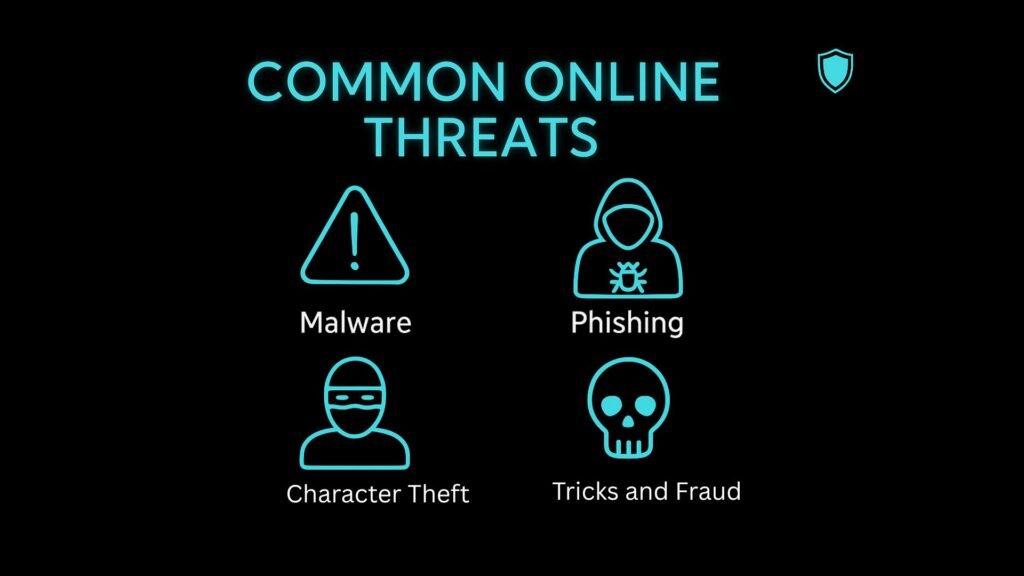
Online Security for Individuals
1. Strong Watchword Practices:
Passwords are the to begin with line of defense. Utilizing solid, special passwords for distinctive accounts decreases dangers. A solid secret word should:
- Be at slightest 12 characters long
- Using a watchword chief can offer assistance you keep track of complex passwords securely.
2. Two-Factor Verification (2FA):
Enabling 2FA includes an additional security layer. Indeed if a programmer takes your watchword, they would still require a moment code (as a rule sent to your phone or produced by an app) to get to your account.
3. Updating Program Regularly:
Operating frameworks, browsers, and applications discharge standard security overhauls. Coming up short to upgrade takes off your gadget helpless to cyberattacks.
4. Safe Browsing Habits:
Avoid clicking on suspicious joins, particularly in spontaneous emails or pop-up advertisements. Confirm site URLs some time recently entering individual points of interest. A secure site ordinarily starts with “https://” and appears a lock symbol.
5. Antivirus and Firewalls:
Using trustworthy antivirus computer program and empowering firewalls makes a difference identify and square malevolent threats.
Online Security for Families and Children
Children and young people are among the most defenseless bunches online. Guardians and gatekeepers must take dynamic steps to secure them.
1. Parental Controls:
Most gadgets and stages offer parental controls to limit substance, set screen-time limits, and screen activity.
2. Educating Children:
Open communication is key. Instruct children about:
- The threats of sharing individual information
- Identifying cyberbullying
- Reporting suspicious activities
3. Monitoring Social Media Use:
Social media can uncover youthful clients to outsiders, hurtful substance, and peer weight. Guardians ought to direct children on security settings and empower sound online habits.
4. Online Gaming Safety:
Online recreations are a well known medium for interaction, but they moreover posture dangers such as presentation to outsiders or in-game tricks. Energize secure gaming by setting boundaries and checking interactions.

Online Security for Businesses
Businesses are prime targets for cybercriminals due to the expansive sums of delicate information they store.
1. Employee Training:
Most breaches happen due to human blunder. Customary preparing on phishing, information taking care of, and secret word administration is crucial.
2. Data Encryption:
Encrypting delicate client information guarantees that indeed if it is stolen, it remains unreadable.
3. Secure Networks:
Businesses ought to contribute in secure systems, firewalls, and Virtual Private Systems (VPNs) to secure inner communications.
4. Regular Backups
Ransomware assaults can bolt businesses out of their claim information. Standard reinforcements minimize harm and guarantee speedy recovery.
5. Compliance with Regulations
Businesses must follow to information security laws such as the GDPR (Common Information Assurance Control) to defend shopper trust.
Online Security for Olders
Older grown-ups are frequently focused on by tricks due to restricted computerized education. Common tricks incorporate fake tech back, lottery extortion, or phishing calls.
Tips for Olders:
- Be cautious of spontaneous emails and phone calls
- Never share keeping money subtle elements or passwords
- Ask trusted family individuals some time recently making online purchases
- Use basic guides to learn secure web practices
The Part of Governments and Organizations:
Governments, law authorization offices, and worldwide organizations play an critical part in improving online security. They:
- Develop cybersecurity laws and policies
- Conduct mindfulness campaigns
- Monitor and take down pernicious websites
- Provide stages for announcing cybercrimes
Public-private associations are moreover crucial in building a secure advanced ecosystem.
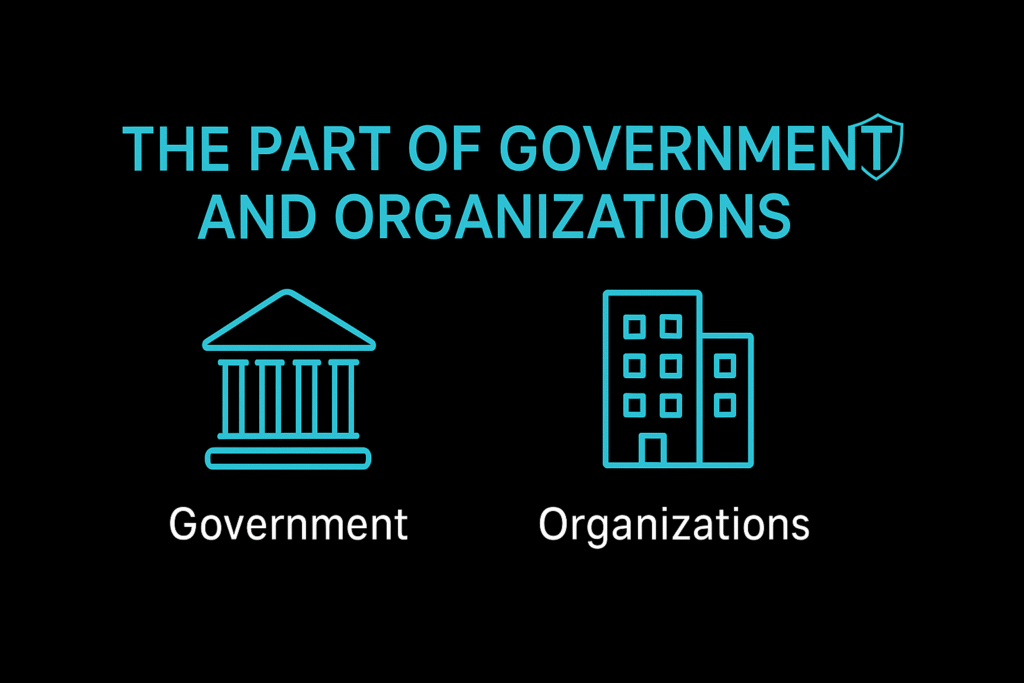
The Future of Online Safety:
As innovation advances, so do online dangers. Fake insights (AI), blockchain, and quantum computing will reshape the cybersecurity scene. AI will improve danger discovery, but it might too be abused by cybercriminals. Blockchain guarantees secure exchanges, whereas quantum computing might challenge existing encryption methods.
The future requests computerized education, more grounded worldwide participation, and persistent advancement to protect online spaces.
Conclusion:
Online security is not a one-time assignment but an continuous obligation. With dangers getting to be more modern, people, families, businesses, and governments must work together to make a secure computerized world. By embracing secure practices—such as solid passwords, cautious browsing, parental direction, and representative training—we can diminish dangers significantly.
In the computerized age, mindfulness and watchfulness are your most noteworthy instruments for security. Fair as you bolt your entryways at night, it’s time to bolt your advanced entryways and secure your online life.
FAQs on Online Safety
1. What is online safety?
Online security alludes to the hone of securing oneself, individual information, and advanced exercises from cyber dangers such as hacking, tricks, and online harassment.
2. Why is online security important?
It makes a difference avoid personality robbery, money related extortion, cyberbullying, and unauthorized get to to individual or commerce information. Without appropriate safeguards, online clients can confront.
3. How can I secure my children online?
Use parental controls, screen their social media utilize, teach them almost threats, and empower open communication. Setting boundaries and instructing computerized obligation are essential.
4. What are the most common online threats?
The most common dangers incorporate phishing, malware, tricks, personality robbery, cyberbullying, and security invasions.
5. Is antivirus program sufficient for online safety?
While antivirus program is imperative, it is not sufficient on its claim. Secure browsing propensities, solid passwords, and customary overhauls are similarly fundamental for protection.
6. How can businesses guarantee online safety?
Businesses ought to prepare representatives, utilize information encryption, contribute in secure systems, conduct normal reinforcements, and comply with cybersecurity directions.

